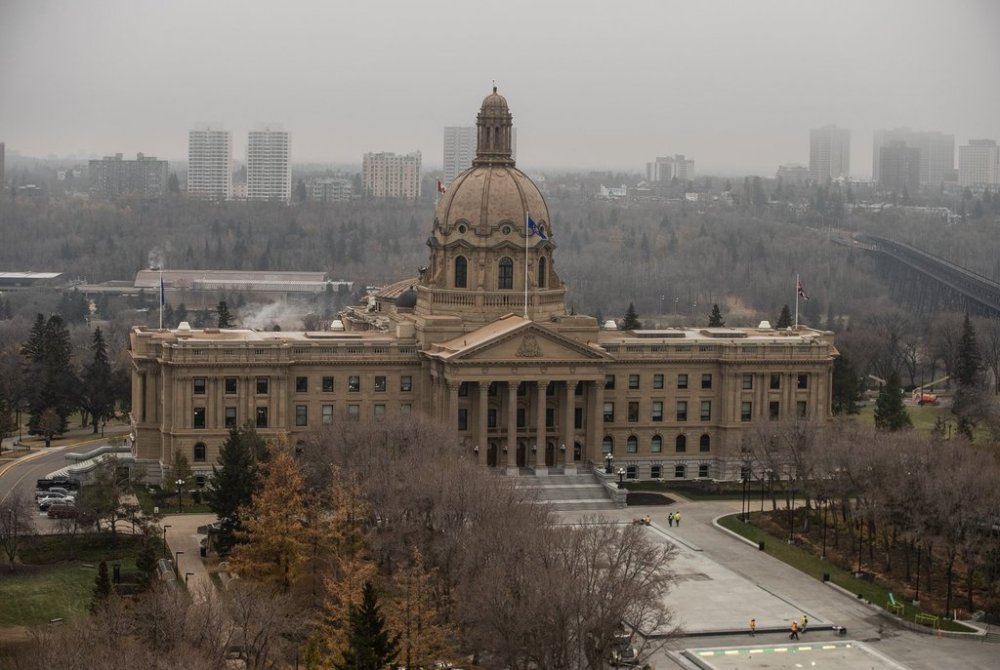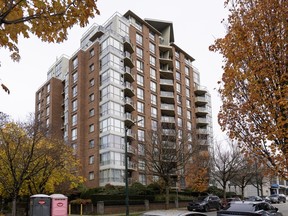Entertainment
Alberta’s New ID Policy Stirs Controversy Over Citizenship Markers

EDMONTON – The Alberta government’s decision to incorporate mandatory citizenship markers on provincial identification has sparked significant debate. Critics argue that this move may not address a clear issue and could lead to potential privacy violations and discrimination.
Premier Danielle Smith announced the initiative, claiming it aims to streamline services and combat election fraud. However, many, including Zool Suleman, a Vancouver-based immigration lawyer, question the rationale behind this policy. Suleman expressed concern over an increasing trend toward the mandatory disclosure of personal information, stating, “There’s some kind of hovering fear… that there are people who are voting who are not supposed to vote.”
Suleman emphasized that current identification methods, such as Canadian passports and citizenship cards, already serve to verify citizenship status. He warned that the government’s new requirement could lead to an environment where non-citizens face unwarranted scrutiny. “The absence of information on a card becomes a means by which to profile people,” he noted.
The proposal emerges as part of the Alberta Next panel’s tour across the province, advocating for measures to counter federal policies. One of the panel’s suggestions includes establishing a provincial immigration system that would deny social services to newcomers who do not meet specific criteria. Suleman cautioned that such approaches could unfairly target immigrants and individuals with temporary status.
Service Alberta Minister Dale Nally defended the initiative, asserting that adding citizenship markers to driver’s licenses and other forms of ID is a straightforward process designed to simplify the application for benefits and entitlements. “This is pure and simple about putting citizenship on driver’s licenses to make it easier,” he stated.
Opposition NDP immigration critic Lizette Tejada criticized the government for failing to clarify the necessity of this change. She highlighted that Elections Alberta recorded only three reprimands for ineligible voting since the last provincial election in 2023, questioning the need for more stringent identification measures.
In addition to the citizenship markers, the Alberta government announced plans to include health card numbers on driver’s licenses. Premier Smith indicated that there is a discrepancy of over 530,000 Alberta health care numbers compared to the province’s population. This integration aims to identify “outliers” in the health care system.
Health officials suggest that some discrepancies may arise from individuals who have relocated without canceling their Alberta coverage or from those who have passed away without notifying the health department. There is also evidence indicating that some former residents continue to use their Alberta health cards.
As this legislative proposal is set to be introduced in the fall, the government plans to implement these changes next year. The implications of this policy change could significantly affect the lives of many Albertans, particularly those who may find themselves unfairly targeted due to their citizenship status.
This report was first published on September 16, 2025, by The Canadian Press.
-

 World4 months ago
World4 months agoScientists Unearth Ancient Antarctic Ice to Unlock Climate Secrets
-

 Entertainment4 months ago
Entertainment4 months agoTrump and McCormick to Announce $70 Billion Energy Investments
-

 Lifestyle4 months ago
Lifestyle4 months agoTransLink Launches Food Truck Program to Boost Revenue in Vancouver
-

 Science4 months ago
Science4 months agoFour Astronauts Return to Earth After International Space Station Mission
-

 Technology2 months ago
Technology2 months agoApple Notes Enhances Functionality with Markdown Support in macOS 26
-

 Top Stories3 weeks ago
Top Stories3 weeks agoUrgent Update: Fatal Crash on Highway 99 Claims Life of Pitt Meadows Man
-

 Sports4 months ago
Sports4 months agoSearch Underway for Missing Hunter Amid Hokkaido Bear Emergency
-

 Politics3 months ago
Politics3 months agoUkrainian Tennis Star Elina Svitolina Faces Death Threats Online
-

 Technology4 months ago
Technology4 months agoFrosthaven Launches Early Access on July 31, 2025
-

 Politics4 months ago
Politics4 months agoCarney Engages First Nations Leaders at Development Law Summit
-

 Entertainment4 months ago
Entertainment4 months agoCalgary Theatre Troupe Revives Magic at Winnipeg Fringe Festival
-

 Top Stories1 week ago
Top Stories1 week agoFamily Remembers Beverley Rowbotham 25 Years After Murder





















